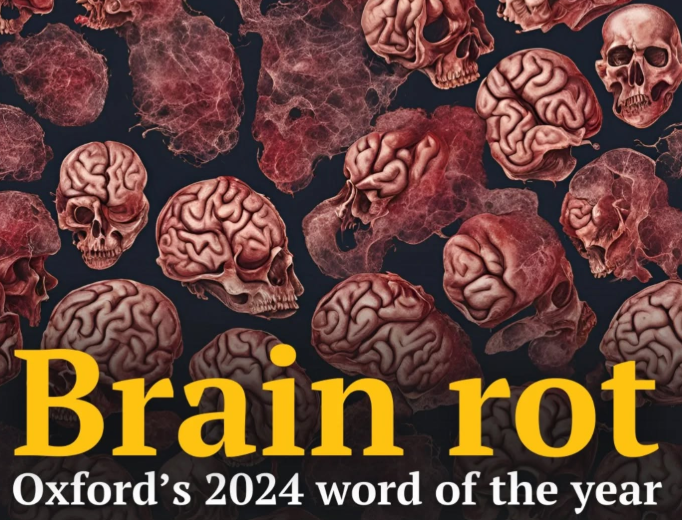As a student wellbeing counsellor, I’m here to talk about a growing concern: brain rot—a term that has become more relevant in today’s digital age. Oxford’s 2024 Word of the Year, “brain rot,” captures the mental fog, shortened attention span, and cognitive decline caused by excessive screen time and mindless online consumption. If you’re a student, you might have noticed the effects of this in your daily life, and the good news is that you can take steps to reverse it.
What Is ‘Brain Rot’?
Brain rot refers to the negative impact of prolonged digital overconsumption, particularly the consumption of low-quality online content. In 2024, the usage of the term increased by 230%, and it’s easy to see why. Social media addiction, mindless scrolling, and constant notifications are affecting the way we think, behave, and focus.
Studies have shown that excessive time spent on social media can negatively impact decision-making, memory, and executive function, especially among young adults. These behaviors may include:
Zombie scrolling: Mindlessly flipping through social media feeds without purpose.
Doom scrolling: Obsessively consuming distressing or negative news.
Gaming overload: Spending too much time gaming, leading to withdrawal from real-life activities.
Notification addiction: Frequently checking your phone due to dopamine-driven impulses.
These behaviors overstimulate the brain, making it harder to focus, process information, and engage in critical thinking. The truth is, our brains weren’t designed for constant digital stimulation.
What’s Happening in Our Brains?
Research reveals some concerning facts:
Gray matter shrinkage: Excessive screen time leads to a reduction in the gray matter responsible for decision-making and impulse control.
Addictive feedback loops: Social media usage floods the brain with dopamine, reinforcing addictive behaviors.
Weakening of the prefrontal cortex: The part of the brain responsible for deep thinking and self-regulation becomes weakened with constant overstimulation, making it difficult to focus for extended periods.
Over time, this rewires the brain to crave instant gratification, impairing our ability to concentrate and think critically.
Real-World Impact
While some may dismiss brain rot as an exaggerated online meme, its real-world effects are becoming evident. A study of over 1,000 young adults revealed that social media addiction negatively affects planning, problem-solving, and memory. Additionally, the chronic overstimulation linked to excessive screen time is tied to higher rates of anxiety and depression, particularly among Gen Z and Gen Alpha.
How to Protect Your Brain and Wellbeing
If you’re feeling the impact of brain rot or notice that it’s affecting your focus, memory, or mental health, it’s important to take action. Here are some practical steps to help protect your brain:
Set screen time limits: Use apps to track your screen time and set time restrictions to keep your digital habits in check.
Strengthen your brain: Engage in activities that challenge your mind—read books, solve puzzles, or learn a new skill.
Go offline: Spend time outdoors, exercise, or practice mindfulness to reconnect with the present moment.
Prioritize real connections: Spend quality time with family and friends in person to strengthen meaningful relationships.
Try a digital detox: Take regular breaks from social media and news to regain mental clarity and focus.
Remember, your brain is the most powerful tool you have. If you feel like you’re struggling with brain rot, it’s okay to ask for help. As a student wellbeing counsellor, I’m here to support you. If you think you might be dealing with the effects of digital overload or need guidance on how to improve your mental health, don’t hesitate to reach out. Together, we can work on strategies to restore balance and improve your focus and wellbeing.
Swipe less. Think more. Choose wisely.
Protect your brain, protect your future.

